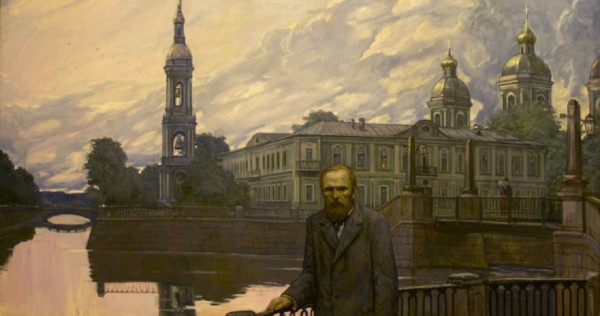
«Falling in love does not mean being in love… One could fall in love with someone they hate.» F.Dostoevsky
Part 1.
Fyodor Dostoevsky was born on a gloomy November day of 1821, in a Moscow hospital for the poor, where his father worked as a doctor. The writer’s life was not happy from the very start: his mother died of tuberculosis, his father, a man of a very cruel nature, was killed by his own serf peasants. Good luck seemed to bypass their family.
Dostoevsky was quite young when he felt the urge to write. His first breakthrough in the world of literature was his novella Poor Folk («Бедные люди»), but after its publication, life did not become easier for the young man. He joined a group of revolutionary minded young people who were secretly preparing a coup in Russia. That rash act nearly led the writer to a fatal outcome.
On April 23, 1849, he was arrested among other young “revolutionaries”. After eight months of trial, Dostoevsky was sentenced to death for “the intent to overthrow the state order”. Later, the writer described the ten horrible minutes of expectation of death. In the very last moment the sentence was commuted to four years of hard labor in Siberia, following army service as a private.

It was during the service in Kazahstan when Dostoevsky found his first love. Maria Isaeva, a beautiful, passionate blonde, was married to an alcoholic and had a miserable life. Dostoevsky became a frequent guest in their home, and in no time he was burning with love for Maria. However, her husband was transfered to work in another town, they left, and soon Maria’s alcoholic husband died. But good fortune never turned its face to Dostoevsky: Maria was to marry another man now. On hearing the disastrous news, the writer had an epileptic attack. Then he wrote to Maria that he would die if she left him.

She did not leave him, and he did not die. In February of 1857, at the age of thirty six, Dostoevsky got married for the first time. The marriage wich started with a seizure, was destinied to be unhappy, though. Both spouses were very nervous and touchy, their life could not be called smooth. Still, they lived together till Maria’s death of tuberculosis in 1864. «She was the most sincere, big-hearted, and generous woman of all I had ever known», Dostoevsky confessed after her death. He had not been equally honest with her, though.
According to his contemporaries, Dostoevsky was a man of insatiable sexuality. No matter how hard he tried to hide it, this trait manifested itself all the time — one could trace it from the way he spoke, moved, behaved, and made eye contact. He was frequently ridiculed for this weakness. Ivan Turgenev even compared him to Marquis de Sade. Quite often, Dostoevsky had to satisfy his excruciating desires in local brothels. There were gossips that the prostitutes who had met Dostoevsky once, refused to see him again, because his fantasies and desires were too overwhelming to bear.
Dostoevsky needed a woman who would be absolutely submissive and would adore him despite his weirdness.
Please, read the second part in my next post.









